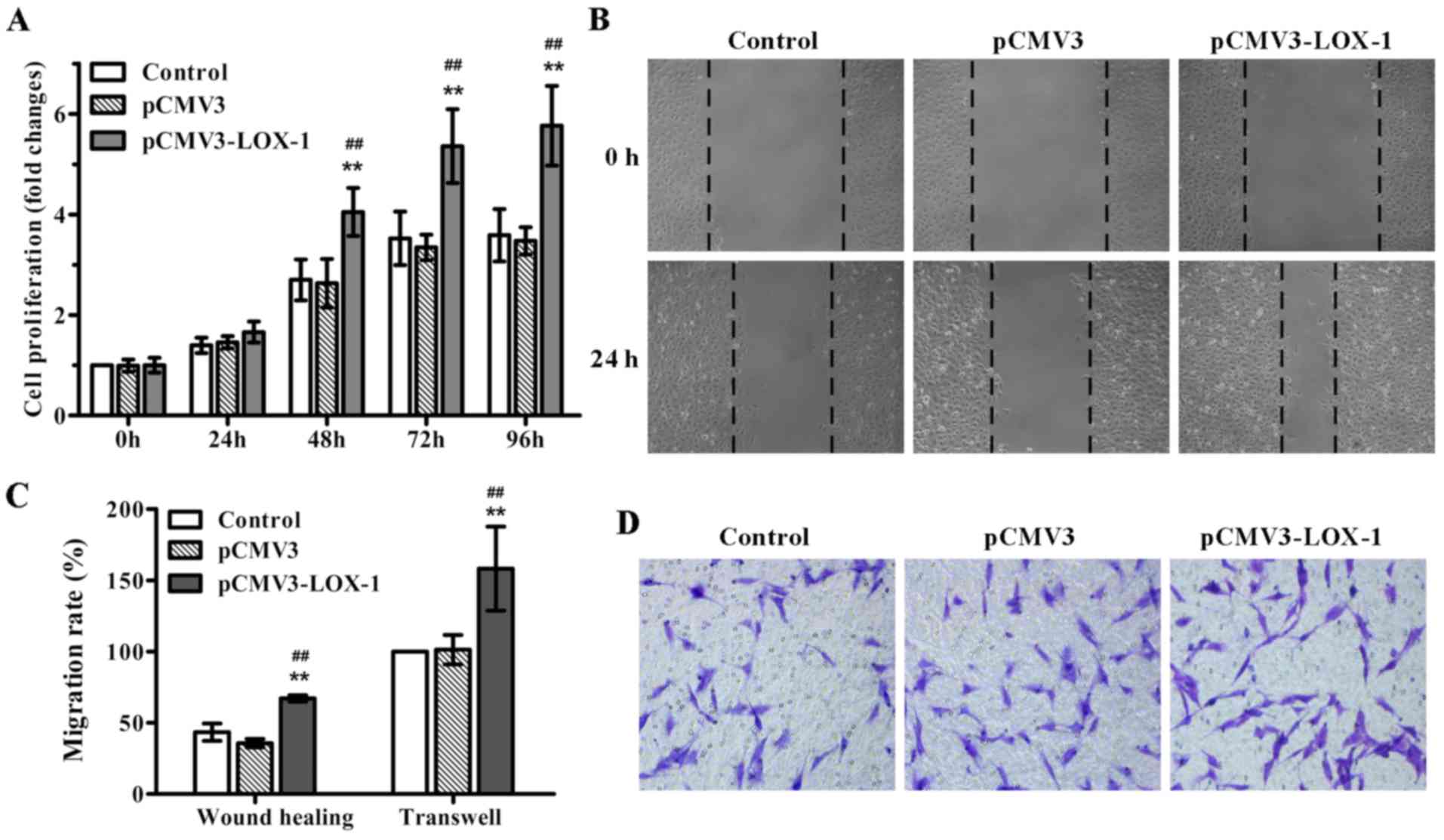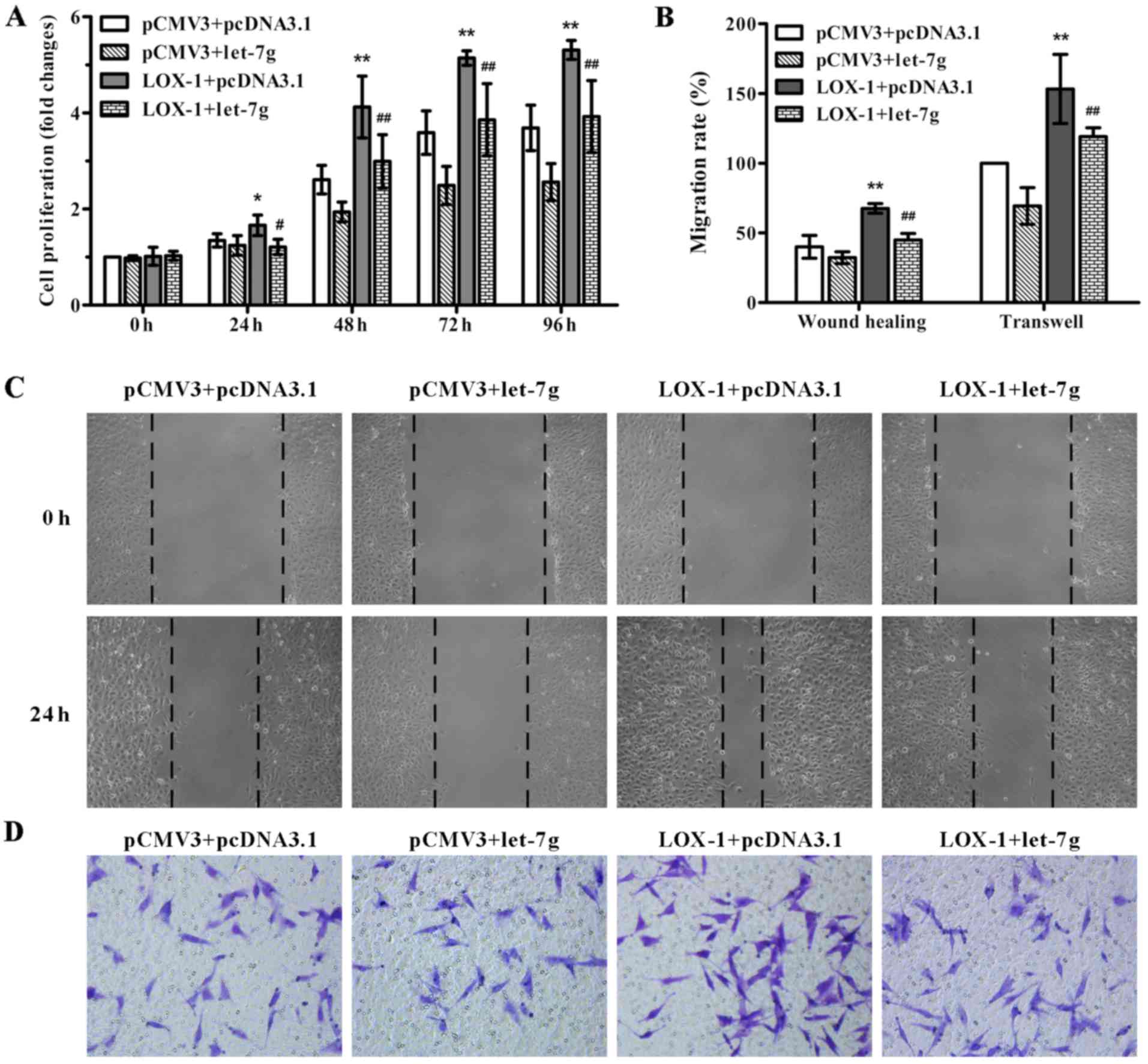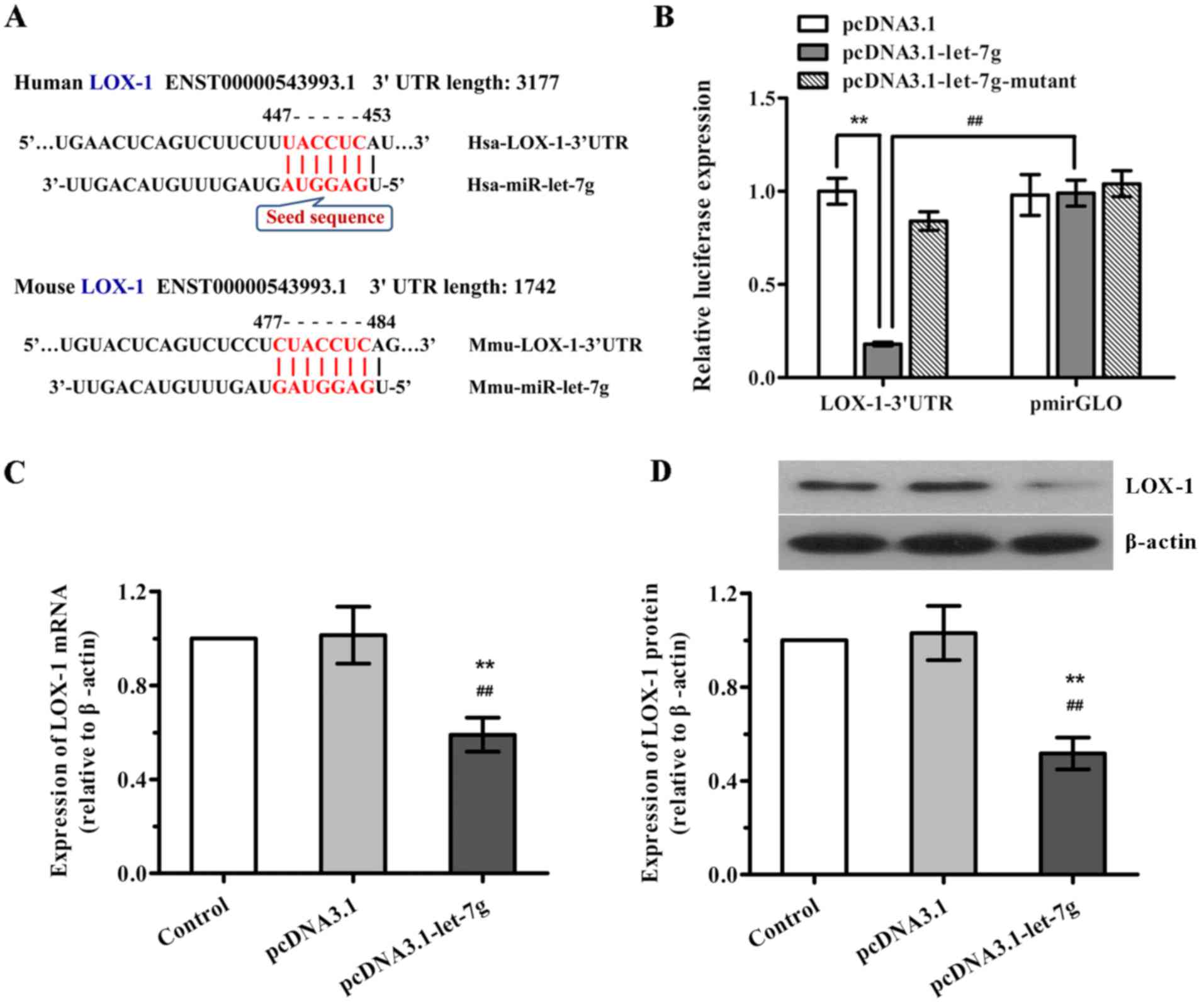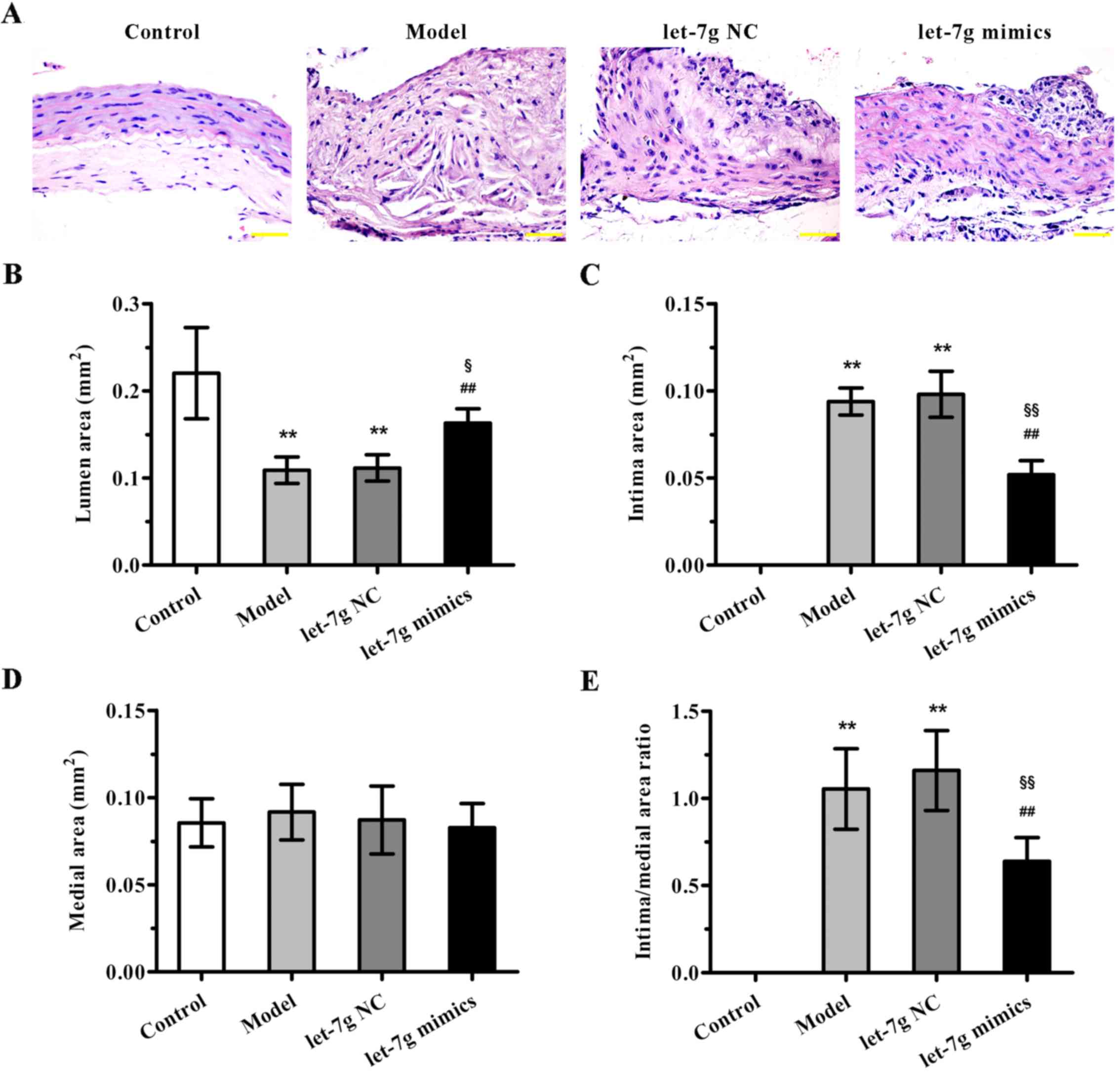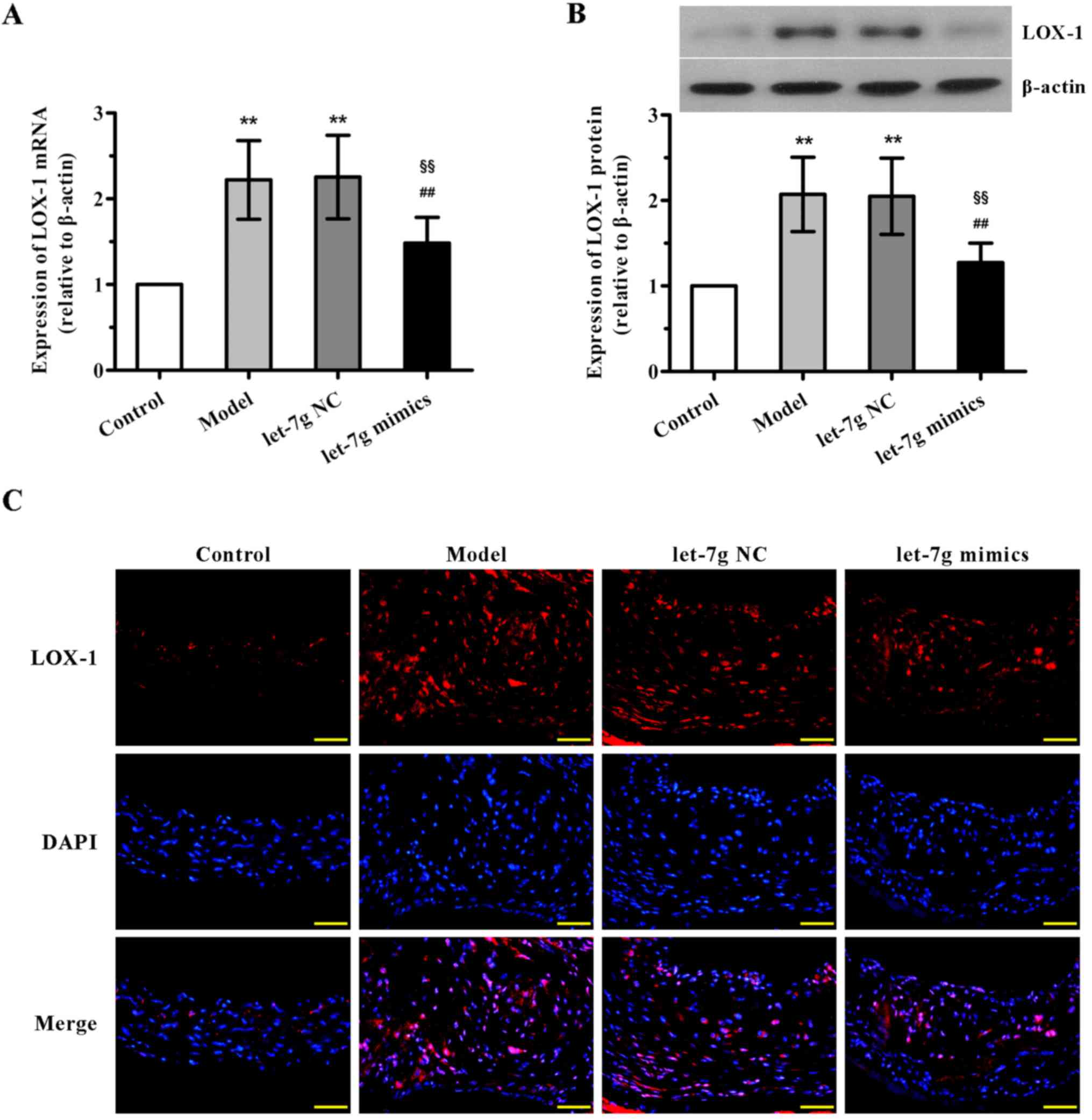|
1
|
Libby P: Inflammation in atherosclerosis.
Nature. 420:868–874. 2002. View Article : Google Scholar : PubMed/NCBI
|
|
2
|
Stocker R and Keaney JF Jr: Role of
oxidative modifications in atherosclerosis. Physiol Rev.
84:1381–1478. 2004. View Article : Google Scholar : PubMed/NCBI
|
|
3
|
Obikane H, Abiko Y, Ueno H, Kusumi Y,
Esumi M and Mitsumata M: Effect of endothelial cell proliferation
on atherogenesis: a role of p21(Sdi/Cip/Waf1) in monocyte adhesion
to endothelial cells. Atherosclerosis. 212:116–122. 2010.
View Article : Google Scholar : PubMed/NCBI
|
|
4
|
Zheng Y, Gardner SE and Clarke MC: Cell
death, damage-associated molecular patterns, and sterile
inflammation in cardiovascular disease. Arterioscler Thromb Vasc
Biol. 31:2781–2786. 2011. View Article : Google Scholar : PubMed/NCBI
|
|
5
|
Liu Z, Xu S, Huang X, Wang J, Gao S, Li H,
Zhou C, Ye J, Chen S, Jin ZG, et al: Cryptotanshinone, an orally
bioactive herbal compound from Danshen, attenuates atherosclerosis
in apolipoprotein E-deficient mice: role of lectin-like oxidized
LDL receptor-1 (LOX-1). Br J Pharmacol. 172:5661–5675. 2015.
View Article : Google Scholar : PubMed/NCBI
|
|
6
|
White SJ, Sala-Newby GB and Newby AC:
Overexpression of scavenger receptor LOX-1 in endothelial cells
promotes atherogenesis in the ApoE(−/−) mouse model. Cardiovasc
Pathol. 20:369–373. 2011. View Article : Google Scholar :
|
|
7
|
Ulrich-Merzenich G and Zeitler H: The
lectin-like oxidized low-density lipoprotein receptor-1 as
therapeutic target for atherosclerosis, inflammatory conditions and
longevity. Expert Opin Ther Targets. 17:905–919. 2013. View Article : Google Scholar : PubMed/NCBI
|
|
8
|
Li D, Chen H, Romeo F, Sawamura T, Saldeen
T and Mehta JL: Statins modulate oxidized low-density
lipoprotein-mediated adhesion molecule expression in human coronary
artery endothelial cells: role of LOX-1. J Pharmacol Exp Ther.
302:601–605. 2002. View Article : Google Scholar : PubMed/NCBI
|
|
9
|
Mitra S, Goyal T and Mehta JL: Oxidized
LDL, LOX-1 and atherosclerosis. Cardiovasc Drugs Ther. 25:419–429.
2011. View Article : Google Scholar : PubMed/NCBI
|
|
10
|
Draude G, Hrboticky N and Lorenz RL: The
expression of the lectin-like oxidized low-density lipoprotein
receptor (LOX-1) on human vascular smooth muscle cells and
monocytes and its down-regulation by lovastatin. Biochem Pharmacol.
57:383–386. 1999. View Article : Google Scholar : PubMed/NCBI
|
|
11
|
Chen H, Li D, Sawamura T, Inoue K and
Mehta JL: Upregulation of LOX-1 expression in aorta of
hypercholesterolemic rabbits: modulation by losartan. Biochem
Biophys Res Commun. 276:1100–1104. 2000. View Article : Google Scholar : PubMed/NCBI
|
|
12
|
Mehta JL, Sanada N, Hu CP, Chen J,
Dandapat A, Sugawara F, Satoh H, Inoue K, Kawase Y, Jishage K, et
al: Deletion of LOX-1 reduces atherogenesis in LDLR knockout mice
fed high cholesterol diet. Circ Res. 100:1634–1642. 2007.
View Article : Google Scholar : PubMed/NCBI
|
|
13
|
Lewis BP, Burge CB and Bartel DP:
Conserved seed pairing, often flanked by adenosines, indicates that
thousands of human genes are microRNA targets. Cell. 120:15–20.
2005. View Article : Google Scholar : PubMed/NCBI
|
|
14
|
McDonald RA, Hata A, MacLean MR, Morrell
NW and Baker AH: MicroRNA and vascular remodelling in acute
vascular injury and pulmonary vascular remodelling. Cardiovasc Res.
93:594–604. 2012. View Article : Google Scholar :
|
|
15
|
Madrigal-Matute J, Rotllan N, Aranda JF
and Fernández-Hernando C: MicroRNAs and atherosclerosis. Curr
Atheroscler Rep. 15:3222013. View Article : Google Scholar : PubMed/NCBI
|
|
16
|
Cheng Y, Liu X, Yang J, Lin Y, Xu DZ, Lu
Q, Deitch EA, Huo Y, Delphin ES and Zhang C: MicroRNA-145, a novel
smooth muscle cell phenotypic marker and modulator, controls
vascular neointimal lesion formation. Circ Res. 105:158–166. 2009.
View Article : Google Scholar : PubMed/NCBI
|
|
17
|
Lovren F, Pan Y, Quan A, Singh KK, Shukla
PC, Gupta N, Steer BM, Ingram AJ, Gupta M, Al-Omran M, et al:
MicroRNA-145 targeted therapy reduces atherosclerosis. Circulation.
126:S81–S90. 2012. View Article : Google Scholar : PubMed/NCBI
|
|
18
|
Elia L, Quintavalle M, Zhang J, Contu R,
Cossu L, Latronico MV, Peterson KL, Indolfi C, Catalucci D, Chen J,
et al: The knockout of miR-143 and -145 alters smooth muscle cell
maintenance and vascular homeostasis in mice: correlates with human
disease. Cell Death Differ. 16:1590–1598. 2009. View Article : Google Scholar : PubMed/NCBI
|
|
19
|
Zhang Y, Chen N, Zhang J and Tong Y:
Hsa-let-7g miRNA targets caspase-3 and inhibits the apoptosis
induced by ox-LDL in endothelial cells. Int J Mol Sci.
14:22708–22720. 2013. View Article : Google Scholar : PubMed/NCBI
|
|
20
|
Ding Z, Wang X, Khaidakov M, Liu S and
Mehta JL: MicroRNA hsa-let-7g targets lectin-like oxidized
low-density lipoprotein receptor-1 expression and inhibits
apoptosis in human smooth muscle cells. Exp Biol Med (Maywood).
237:1093–1100. 2012. View Article : Google Scholar
|
|
21
|
Chen KC, Hsieh IC, Hsi E, Wang YS, Dai CY,
Chou WW and Juo SH: Negative feedback regulation between microRNA
let-7g and the oxLDL receptor LOX-1. J Cell Sci. 124:4115–4124.
2011. View Article : Google Scholar : PubMed/NCBI
|
|
22
|
Liao YC, Wang YS, Guo YC, Lin WL, Chang MH
and Juo SH: Let-7g improves multiple endothelial functions through
targeting transforming growth factor-beta and SIRT-1 signaling. J
Am Coll Cardiol. 63:1685–1694. 2014. View Article : Google Scholar
|
|
23
|
Bild DE, McClelland R, Kaufman JD,
Blumenthal R, Burke GL, Carr JJ, Post WS, Register TC, Shea S and
Szklo M: Ten-year trends in coronary calcification in individuals
without clinical cardiovascular disease in the multi-ethnic study
of atherosclerosis. PLoS One. 9:e949162014. View Article : Google Scholar : PubMed/NCBI
|
|
24
|
Menghini R, Stöhr R and Federici M:
MicroRNAs in vascular aging and atherosclerosis. Ageing Res Rev.
17:68–78. 2014. View Article : Google Scholar : PubMed/NCBI
|
|
25
|
Libby P, Ridker PM and Hansson GK:
Progress and challenges in translating the biology of
atherosclerosis. Nature. 473:317–325. 2011. View Article : Google Scholar : PubMed/NCBI
|
|
26
|
Lu J and Mehta JL: LOX-1: a critical
player in the genesis and progression of myocardial ischemia.
Cardiovasc Drugs Ther. 25:431–440. 2011. View Article : Google Scholar : PubMed/NCBI
|
|
27
|
Ding Z, Wang X, Schnackenberg L, Khaidakov
M, Liu S, Singla S, Dai Y and Mehta JL: Regulation of autophagy and
apoptosis in response to ox-LDL in vascular smooth muscle cells,
and the modulatory effects of the microRNA hsa-let-7g. Int J
Cardiol. 168:1378–1385. 2013. View Article : Google Scholar : PubMed/NCBI
|
|
28
|
Ding Z, Liu S, Yang B, Fan Y and Deng X:
Effect of oxidized low-density lipoprotein concentration
polarization on human smooth muscle cells' proliferation, cycle,
apoptosis and oxidized low-density lipoprotein uptake. J R Soc
Interface. 9:1233–1240. 2012. View Article : Google Scholar :
|
|
29
|
Boyerinas B, Park SM, Hau A, Murmann AE
and Peter ME: The role of let-7 in cell differentiation and cancer.
Endocr Relat Cancer. 17:F19–F36. 2010. View Article : Google Scholar
|
|
30
|
Bao MH, Feng X, Zhang YW, Lou XY, Cheng Y
and Zhou HH: Let-7 in cardiovascular diseases, heart development
and cardiovascular differentiation from stem cells. Int J Mol Sci.
14:23086–23102. 2013. View Article : Google Scholar : PubMed/NCBI
|
|
31
|
Sankaralingam S, Xu Y, Sawamura T and
Davidge ST: Increased lectin-like oxidized low-density lipoprotein
receptor-1 expression in the maternal vasculature of women with
preeclampsia: role for peroxynitrite. Hypertension. 53:270–277.
2009. View Article : Google Scholar
|















